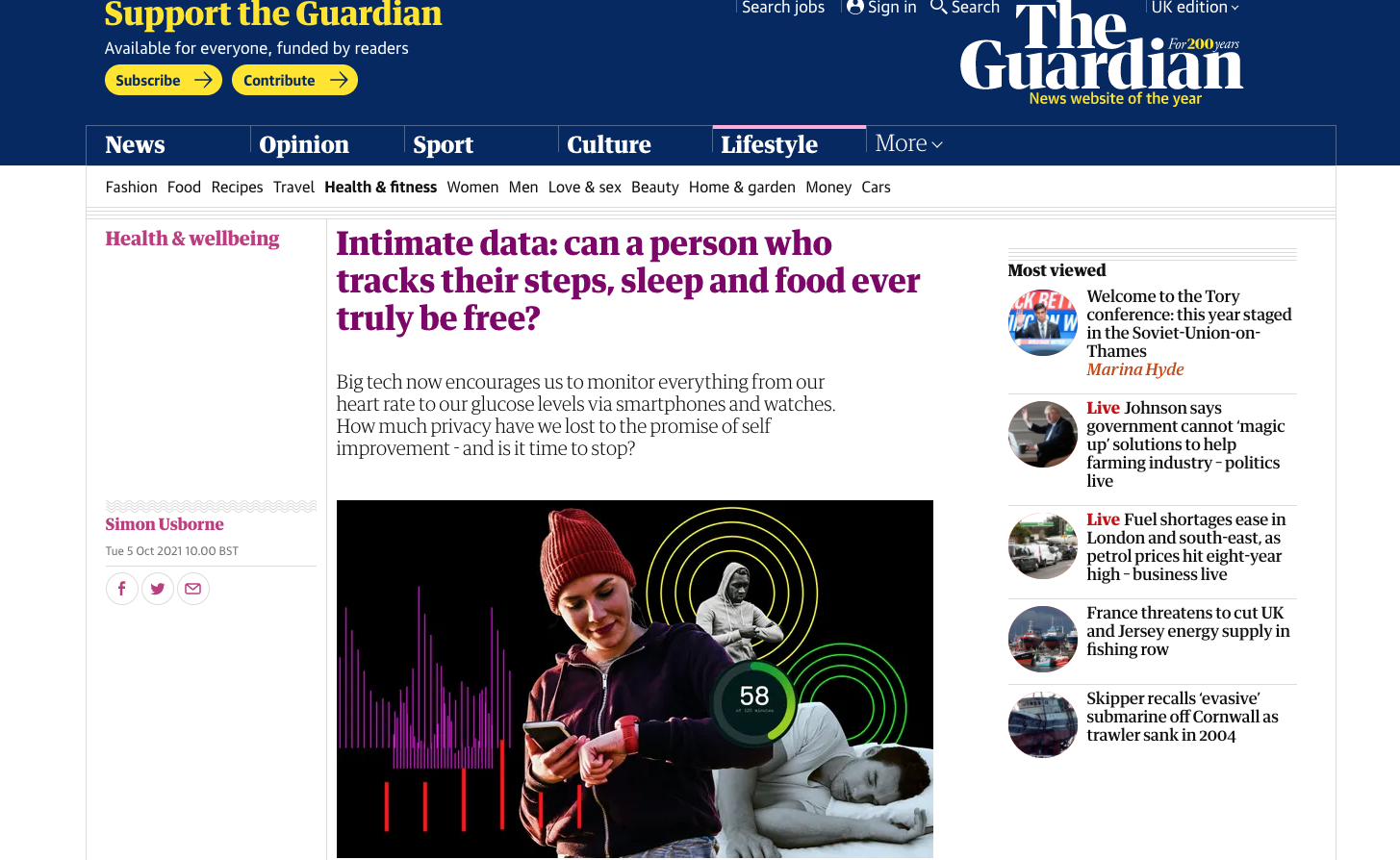Btihaj Ajana has been interviewed in The Guardian about a piece on “Intimate data: can a person who tracks their steps, sleep and food ever truly be free?”. Here are some quotes from the piece:
Such quandaries will only become more common and complex, says Btihaj Ajana, a reader in media and digital culture at King’s College London and a specialist in self-tracking. She traces our tracking instincts in the digital age to the “quantified self” movement. It took shape in 2007 as a way for individuals to use technology to optimise themselves like machines. “What started as a positive phenomenon then got hijacked,” Ajana says.
Constant advances in tracking have given tech companies new ways to keep selling their latest devices, while happily collecting the data we generate and sign away without reading the terms and conditions. “You don’t own that data,” Ajana says. Apple promises to encrypt and guard the multiplying streams of health data it collects for us. But much of the concern about privacy in this growing market is what we consent to share with third-party apps and services that have their own privacy policies. “We are so blase about privacy,” Ajana says.
It is easy to imagine the value of health data not only to insurers, but also advertisers and employers. Around 2014, a number of big businesses started giving Fitbits to staff, collecting information on their sleep, activity and location. The rise of corporate tracking, which is presented as an employee perk (free watch! Better health!), may be hastened by Covid. LifeSignals, a California startup that has developed a chest patch to measure signals including breathing, temperature and even posture, noted a spike in demand last year from big businesses that wanted to screen staff for Covid symptoms.
“Some employers ask employees to compete with each other to be more healthy,” Ajana adds. “It can all seem benign and nice – but what if that data also gets used to decide who gets the next promotion or whose health insurance policy needs adjusting?” Opting out of such programmes can feel like a career risk of its own.

